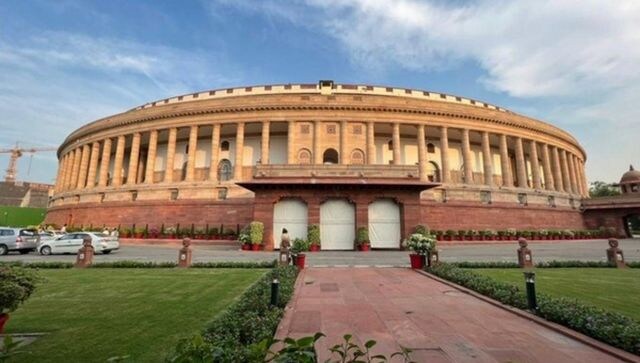Budget 2023: Increase FDI limit in insurance sector; availability of fresh capital will boost sector
There is a need for a composite licence to insurance companies to be able to offer different products

Availability of fresh capital will augur well for insurance companies, Reuters
India has entered a phase that is being touted as most critical for its economic growth and development, even as it continues to show great resilience amid global uncertainties. With strong reforms and policies in the last few years, India has displayed a determination to support the domestic manufacturing and services sectors. An integral part of this extraordinary growth journey is the country’s insurance sector, which is projected to become the world’s sixth largest by premium volumes over the next decade.
Not only has the sector witnessed support from policymakers in terms of ease of doing business and the development of the India Stack, but recent years have also seen a transformation in people’s attitudes towards insurance. These efforts have translated into deeper insurance penetration in the country, reaching 4.2 per cent in FY2021 from 3.76 per cent in FY2020.
As much as this growth instils confidence, if India aims to reach the levels attained in developed nations and fulfil the 2047 vision of ‘insurance for all’, it is imperative for the Union Budget to consider much-awaited measures that can move the sector from a phase of evolution to revolution.
Increase of FDI limit in insurance sector
Given the current trajectory in healthcare costs as well as India’s commitment to increase insurance penetration, the availability of fresh capital will augur well for insurance companies. As such, the industry will be keenly looking forward to the fulfilment of its demand to raise the cap on FDI in the sector from the current 74 per cent to 100 per cent. At the same time, improving foreign reinsurance branches (FRB) infrastructure in India also requires special attention to simplifying the regulatory framework and rationalising the cost of doing business in India.
Allowing composite licence
We are also expecting the government to take up the proposal of issuing composite licences for life and general insurance companies soon. A composite licence will allow insurance companies to offer different insurance products with a single licence, thus supporting improved utilisation of distribution networks and promoting competition.
Reduction of GST on insurance premium
For most insurance products, the current rate of Goods and Services Tax (GST) translates to a significant increase in insurance premium cost for the policyholder. While for corporates, insurance is a business cost, we hope the government considers bringing down the GST slab for retail insurance from the current 18 per cent. This will make insurance premiums, especially health insurance, more affordable to the middle-income group and improve their access to quality healthcare.
Relaxation of capital norms
Easing the Rs 100 crore minimum capital requirement for entry into the insurance business will increase the number of players, improve insurance penetration and enable microinsurance players, and also benefit the industry by introducing cutting-edge technology, innovative products and best practices. To safeguard policyholder interest, adequate risk-based solvency requirements can be introduced.
Strengthening the role of insurance in hedging climate risks
Apart from the focus on solar and renewable energy, other industries and sectors are working to build environmentally sensitive production and distribution channels prioritising a low carbon economy. In doing so, they will have to contend with balancing change against both business and climate risks. Policy and budget measures, in collaboration with the insurance sector, can significantly improve the assessment, mitigation and transfer of climate or climate-related risks.
Exemption of stamp duty
Currently, stamp duty on group term life insurance policies and group personal accident policies is applicable on the entire sum assured, should there be a change in the insurer. Considering measures like levying stamp duty only on the incremental sum assured, should the insurer change, would make it a level playing field and ultimately benefit policyholders.
These measures, along with the recently proposed amendments in the Insurance Act 1938 and the Insurance Regulatory and Development Authority Act 1999, have the power to bring about a revolution in the insurance sector and narrow the insurance gap across the country.
The Union Budget 2023, if reflective of industry demands, can be a golden opportunity to unlock the full potential of this sunrise sector. The gains will be manifold and crucial for India to move ahead and beyond in the Amrit Kaal.
The writer is Sudesh Shetty Regional Director – Health and Benefits, Asia- WTW and Prabha C, Head of Broking and Placement India – WTW Views expressed are personal.
Read all the Latest News, Trending News, Cricket News, Bollywood News,
India News and Entertainment News here. Follow us on Facebook, Twitter and Instagram.
also read

Budget 2023: Government may focus on populist measures as it is last full Budget ahead of polls
Individuals and experts are eyeing a favourable capital gains tax regime to promote investments in the economy

Union Budget 2023-24: Date, time and where you can watch presentation
You can watch the live streaming of Union Budget on DD News, Lok Sabha TV, Rajya Sabha TV, and other news channels

Budget 2023-24: PM Modi lauds Budget, says 'Amrit Kaal’s first budget provides foundation for developed India'
This budget is for a sustainable future further encouraging green energy, green growth, green infrastructure, and green jobs. We have focused on technology & new economy in the budget, says PM Narendra Modi.


